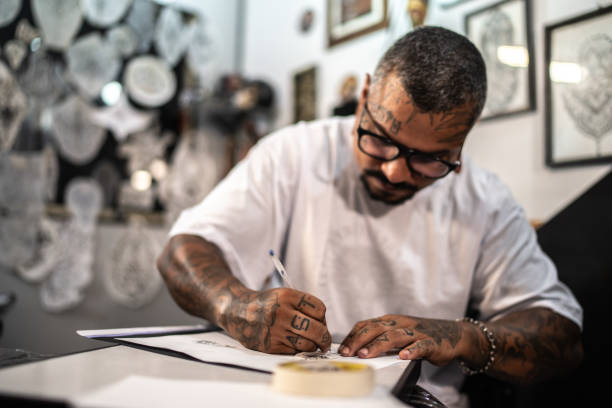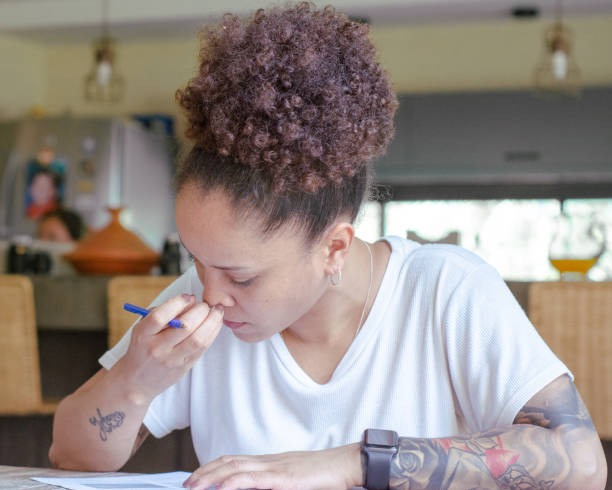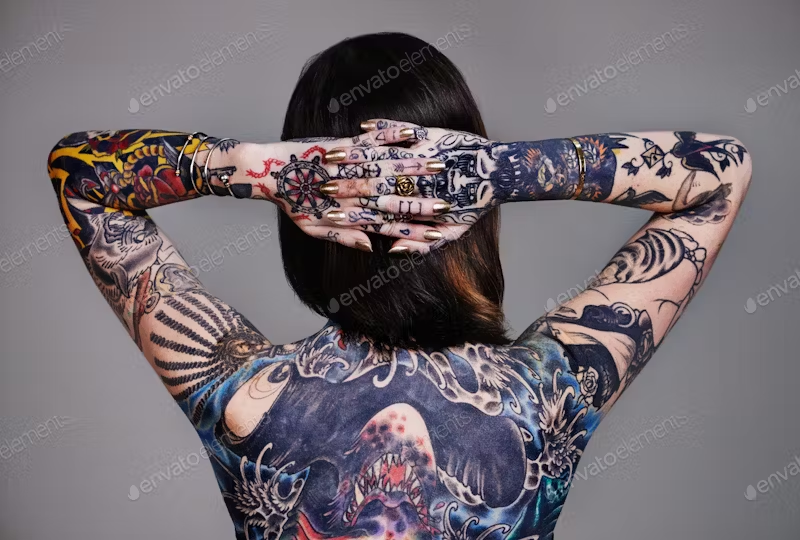Itchy tattoos – they’re like a surprise party you didn’t sign up for. Imagine this: You finally get that tattoo you’ve been dreaming about. It’s a symbol of your personality, your journey, or maybe just something you love. But then, something unexpected happens. Your new ink starts acting up. It becomes raised, like a tiny mountain on your skin, and worst of all, it’s itchy. You find yourself scratching at it, hoping to ease the irritation, but it only seems to make it worse.
This is what we’re talking about when we say a tattoo becomes randomly raised and itchy. It’s when your skin around the tattoo gets all bumpy and starts demanding your attention with that relentless itch. Now, you might wonder, why should I care about this? Well, aside from being annoying as heck, itchy tattoos can actually be a sign that something’s not quite right. It could mean your skin is having a bit of a tantrum, reacting to the ink or maybe even battling a sneaky infection.
For anyone who’s ever proudly worn their ink, having it suddenly turn into an itchy troublemaker is like a tiny betrayal. You wanted a piece of art, not a constant source of discomfort. That’s why understanding why this happens and what to do about it is super important for anyone who’s thinking about getting inked or already proudly sporting their tattoos. Because let’s face it, nobody wants an itch that just won’t quit, especially when it’s messing with your masterpiece.
Contents
Causes of Raised and Itchy Tattoos

When your tattoo starts feeling like an itchy troublemaker, there are several potential reasons behind the scenes. Let’s explore some of the main culprits:
1. Allergic Reactions
Imagine your skin throwing a fit because it doesn’t like something that’s been injected into it – that’s an allergic reaction. Sometimes, your body can be sensitive to the ink itself or even the products used to take care of your tattoo afterward. It’s like your skin saying, “Hey, this isn’t my jam!” And the result? You guessed it, itchiness galore!
2. Infection
Think of your tattoo as a freshly painted canvas. Now, imagine some sneaky bacteria or fungi deciding to crash the party. They can turn your masterpiece into a hotbed of inflammation and, you guessed it, itchiness. It’s like having uninvited guests wreaking havoc on your skin’s party.
3. Healing Process
Picture your skin as a superhero, working hard to heal itself after getting tattooed. Sometimes, though, it goes a bit overboard with its healing powers, and your tattoo area might puff up and get super itchy in the process. It’s like your skin saying, “I got this, but whoa, maybe I’m doing too much!” So, while your body is busy being a healing superhero, you’re stuck dealing with the annoying sidekick – itchiness.
4. Dry Skin
Just like a desert yearns for rain, your skin can become parched and thirsty, especially around your tattoo. When your skin lacks moisture, it can become irritated and itchy, making you want to scratch that inked area like crazy.
5. Overworking the Skin
Sometimes, if you’re not careful, you might accidentally overdo it with your tattoo aftercare routine. Too much rubbing, scrubbing, or applying too many products can irritate your skin and make it feel like a never-ending itch fest.
6. Low-Quality Tattoo Ink
Picture this: your tattoo artist uses subpar ink that’s not up to snuff. It might contain ingredients that your skin just isn’t happy with, triggering an itch-inducing reaction. It’s like your skin saying, “I deserve better ink, thank you very much!”
7. Sun Exposure
Your tattoo might look stunning under the sun, but too much UV exposure can wreak havoc on your skin and your ink. Sunburn around your tattoo can cause redness, swelling, and, you guessed it, itchiness, turning your sunny day into an itchy nightmare.
8. Stress
Ah, stress – the not-so-friendly neighborhood troublemaker. When you’re stressed out, your body releases all sorts of hormones that can mess with your skin, making it more prone to itching and irritation. So, if you’re feeling stressed, your tattoo might just join in on the itch-fest.
By considering these factors, you can better understand why your tattoo might be causing you an itch and take steps to soothe your skin and keep that ink looking and feeling its best.
Symptoms and Characteristics

Let’s delve into what happens when your tattoo decides to throw an itchy tantrum and how you can tell if it’s just a normal part of the healing process or something more serious:
When your tattoo starts acting up, it’s like your skin is staging a tiny rebellion. Here’s what you might experience:
1. Redness and Swelling: Picture your skin blushing and puffing up like a balloon – that’s redness and swelling for you. It’s your body’s way of responding to irritation or inflammation. And guess what? It can make that itchiness even more intense, like a fiery red flag waving in the breeze.
2. Discomfort and Pain: Imagine your skin throwing a fit and letting you know it’s not happy – that’s discomfort and pain for you. It’s like a persistent ache or throbbing sensation that just won’t quit, making you want to scratch at your tattoo like there’s no tomorrow.
3. Heat and Warmth: Ever touched your tattoo and felt like it’s radiating heat? That’s your skin turning up the temperature in protest. It’s like your tattoo area has its own little heatwave, adding to the discomfort and itchiness.
Differentiating Normal Healing from Problems

Now, how do you know if your tattoo’s itchiness is just part of the healing process or if there’s a bigger issue brewing? Here’s how to tell:
1. Duration and Intensity: If your tattoo itchiness is mild and starts to ease off after a few days, it’s likely just your skin doing its thing as it heals. But if it’s intense and doesn’t seem to let up, or if it gets worse over time, it might be a sign that something’s not quite right.
2. Appearance of the Tattoo: Take a good look at your tattoo. Is it oozing, excessively red, or swollen beyond what seems normal? These could be signs of infection or an allergic reaction, and it’s definitely worth getting checked out by a professional.
3. Other Symptoms: Are you experiencing fever, chills, or unusual discharge from your tattoo? These are red flags that something more serious might be going on beneath the surface, and you should seek medical attention ASAP.
4. Instinct: Sometimes, you just know when something’s not right. Trust your gut – if your tattoo feels off, don’t ignore it. It’s better to be safe than sorry and get it checked out by a healthcare provider.
By paying attention to these symptoms and knowing when to seek help, you can navigate the ups and downs of the tattoo healing process with ease, ensuring that your ink journey is as smooth and itch-free as possible.
Risk Factors

we’ll explore how conditions like eczema or psoriasis can amplify itchiness and inflammation during the tattooing process.
Pre-existing Skin Conditions
Imagine your skin as a sensitive canvas, but for some, it’s more like a battleground due to conditions like eczema or psoriasis. These conditions can make your skin super itchy even before you get a tattoo. It’s like your skin is already itching for a fight, and adding ink to the mix might just set it off.
With eczema or psoriasis, your skin’s natural defenses are weakened. It struggles to keep moisture in and irritants out. So when you introduce tattoo ink and needles into this delicate environment, it’s like pouring gasoline on a fire. Your tattoo area might become even itchier, redder, and more inflamed than usual.
Plus, the healing process for tattoos can be tougher for those with pre-existing skin conditions. It’s like asking a marathon runner to sprint an extra mile – your skin might struggle to keep up, leading to prolonged discomfort and itchiness.
Poor Aftercare
Now, let’s talk about tattoo aftercare. It’s like giving your tattoo a little love and attention after the inking session. Neglecting this care is like leaving your skin out in the cold – trouble is bound to follow. Skipping aftercare steps can leave your tattoo area dry, irritated, and begging for relief – and yes, it can be itchier too.
Proper aftercare involves keeping your tattoo clean, moisturized, and protected. Skipping these steps can leave your skin vulnerable to infections, allergic reactions, and other issues. It’s like playing a risky game with your skin’s health – and trust us, you don’t want to roll the dice with your tattoo.
Treatment Options
When your tattoo starts feeling like a prickly cactus, reaching for over-the-counter creams or ointments can be a lifesaver. These soothing potions work wonders in calming the itchiness and taming inflammation.
Look for creams with ingredients like hydrocortisone or aloe vera, which are like a breath of fresh air for your irritated skin. Hydrocortisone helps reduce inflammation, while aloe vera provides cooling relief, making your skin feel calm and comfortable. Applying these creams gently onto the affected area can provide instant relief from the itchiness, leaving your skin feeling soothed and less irritated.
If the itchiness from your tattoo feels like a wildfire, it’s time to call in the big guns – medical intervention. Severe allergic reactions or infections can turn your tattoo journey into a nightmare, so don’t hesitate to seek professional help.
Keep an eye out for signs like extreme redness, swelling, or oozing – these are red flags that warrant a trip to the doctor. They can prescribe medications like antibiotics or antihistamines to combat the infection and soothe the itchiness, getting you back on track to smooth, itch-free skin.
Lifestyle Changes
Preventing future itchiness and complications with your tattoos starts with simple lifestyle tweaks. First off, resist the urge to scratch that itch – it only makes things worse. Instead, keep your tattoo moisturized and shielded from the sun to prevent dryness and fading.
Consider your skin’s quirks – if you’re prone to allergies or sensitivity, take extra precautions before getting inked. Patch testing tattoo ink beforehand can help identify potential allergic reactions, ensuring a smoother tattoo experience.
And when it comes to choosing a tattoo artist, don’t skimp on quality. Choose someone skilled and experienced who follows strict hygiene practices. Before getting inked, ensure that the tattoo studio maintains cleanliness and uses sterile equipment. This reduces the risk of infections and allergic reactions, providing you with a safer and more comfortable tattooing experience.
By incorporating these treatment options and lifestyle changes into your tattoo care routine, you can minimize itchiness and ensure a smoother healing process for your skin.
So, listen to your skin’s itch, because it’s often trying to tell you something. By understanding the causes and taking proactive steps, you can keep your tattoo journey smooth and itch-free, ensuring your ink stays a source of pride, not irritation.





